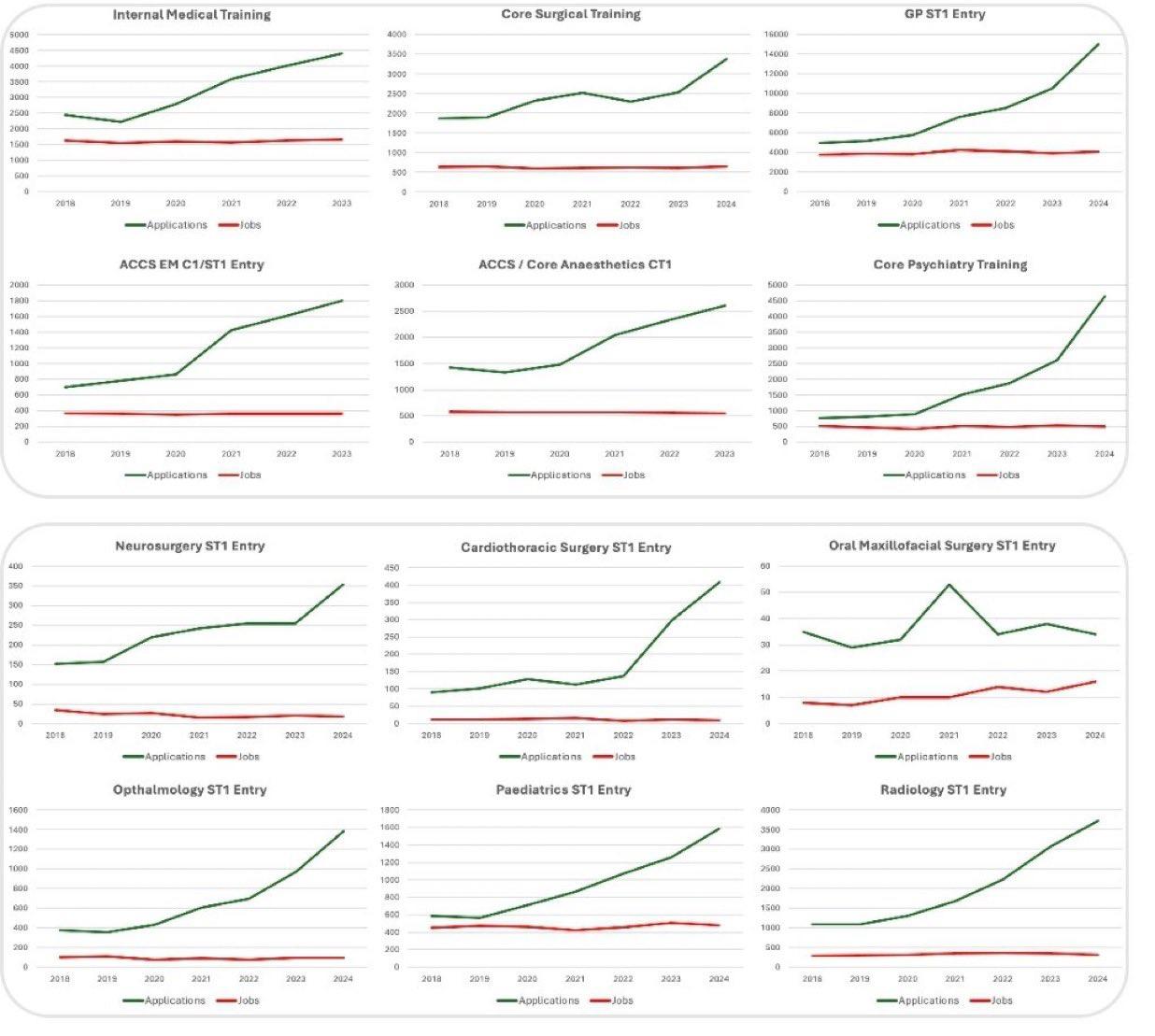- Home
- News
- CBS Executive Board Member, Mr Alistair Jenkins comments on the 2024 NHS Competition Ratios for Medical Recruitment
CBS Executive Board Member, Mr Alistair Jenkins comments on the 2024 NHS Competition Ratios for Medical Recruitment
13 November 2024 by Alistair Jenkins, Neuro surgeon
![]()
 What do you want to do when you grow up? Looking at the recently-released competition ratios for medical recruitment, maybe the answer is… well, it isn’t brain surgery.
What do you want to do when you grow up? Looking at the recently-released competition ratios for medical recruitment, maybe the answer is… well, it isn’t brain surgery.
The statistics make frightening reading, particularly for those who dream of working in acute medicine or surgery. With the exception of of oral/maxillofacial surgery, the ratio of applicants for programmes to jobs actually available are quite heartstopping. And appropriately, cardiothoracic surgery leads the way in the surgical arena with a ratio of 45.33.
Why is this? As ever, there is no single, neat answer, but the expansion of recruitment into medical schools in the last ten years is a good start. This was meant to fill a necessary expansion in senior, permanent posts - but these have not risen as expected. Result - in some specialties, a glut of fully-trained juniors with nowhere to go, and in nearly all a bottleneck at entry level. Add to this the new rules making it easier not to retire, and a government incentive actively to retain older doctors, and it all becomes easier to understand - though no less frightening for the victims.
Should we care? Isn’t competition healthy, and unsurprising given the attractiveness of some of these jobs? Well yes, up to a point; but such ratios have never been seen till now and are too large to be sustainable. And when you can no longer say “Well, there’s always General Practice” - competition ratio at ST1 3.6 - unemployment, or at the very least lack of fulfilment, seems a real prospect.
Can anything be done? Clearly the obvious solution, though requiring considerable government expenditure and therefore not likely to happen overnight, would be to increase the numbers of senior doctors. Isn’t this what the population needs, and the reason for huge waiting lists? Yes and no. Paradoxically, the specialties which have seen considerable consultant expansion - in some cases tripling numbers in 20 years - have not seen a corresponding rise in productivity. In fact in many surgical specialties numbers of operations per unit per year are the same or lower, and self-evidently the number done by each consultant - and by extension the ability to train - has plummeted.
While sociological pressures and the EWTD have led to an easing of the traditionally fraught lifestyle of a senior doctor, the overwhelming reason for failure to improve productivity is simple: lack of staffed beds and operating theatres. Clearly it suits any government to point out that they have increased staffing and therefore it must be our fault, but the simple fact is that an increased number of surgeons competing for the same space doesn’t work. If there aren’t enough trains to convey commuters from A to B, increasing the number of drivers won’t help.
Read other news articles